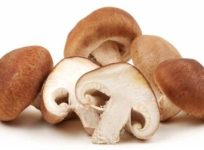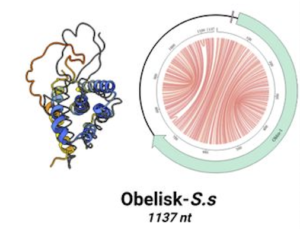Chronic Fatigue Syndrome (CFS), as defined by the CDC and SEER Report, is more common in the United States than lung cancer, leukemia and AIDS cases combined.An estimated 1 million people in this country suffer from CFS and it’s broad range of debilitating symptoms, yet so little is still known about effective and long-term therapies for this condition.
The stereotypical CFS patient is female and between the ages of 35 and 55 years old. Less appreciated is the fact that CFS affects both genders, and people of all ages, from children to senior citizens. In fact, a recent Dutch study showed prevalence of CFS among adolescents as being one in 900 (Sanne L, Nijhof, MD et al. Pediatrics 2011; 127(5): e1169 -e1175.)
This is an equal opportunity illness, and a severe one. It renders some patients housebound, even bed-bound when at their worst. The inability to lead a “normal” life leads to a loss in socialization opportunities, increased risk of family and marital problems, loss of employment and higher rates of depression and suicide. Relapses are common.
Simply put, CFS can be deadly. An alarming new statistic published last year in the Journal of Healthy Psychology noted that over a 10-year period, the mortality rate among patients with CFS was 12.5% higher than the population at large, with increased rates of death from cancer, heart failure and suicide (Jason LA, et al. J Health Psychol. 2011; 16(3): 445-56).
Although the exact etiology of CFS is not known, and in many cases, the problem may have multiple etiologic factors, there is one area that is worth exploring in more detail: the CFS-gut relationship. Digestive health is at the foundation of overall health, and the positive clinical outcomes we’ve seen by focusing on digestive function in CFS patients validate this concept.
Leaky Gut, Funky Flora & Food Sensitivity
Several publications in the last few years have supported a relatively new view that a compromised gastrointestinal mucosa plays a major role in CFS.
Dr. Kenny De Meirleir, a prominent Belgian physician with extensive experience treating CFS, reports that in many patients, the GI mucosal lining is highly compromised, and that this contributes to immune system activation, a major factor in CFS. The cause of intestinal barrier damage is multifactorial and complex. One factor is likely viruses (Epstein-Barr Virus and HHV-6).
Clinical experience also points towards high levels of stress, frequent antibiotic use and a history of a sickly childhood (which often includes extensive GI problems, food intolerances and frequent illnesses usually treated with multiple rounds of antibiotics) being factors, which increase damage to the gastrointestinal mucosa.
A study of CFS patients in Belgium showed an increased serum concentration of IgA and IgM to lipopolysaccharides produced by various gram-negative bacteria in a group of 41 CFS patients. The elevated immunoglobulin levels correlated with a weakened tight junction barrier and gut-derived inflammation.
These patients then underwent a measured intake of natural anti-inflammatory and anti-oxidative substances (glutamine, N-acteyl cysteine, and zinc) along with a “leaky gut” diet for a period of 10-14 months. Twenty-four of the 41 patients showed significant clinical improvement or remission (based on changes in CFS Rating Scale scores) within this time period. Investigators were able to predict which patients would show the most improvement based on the attenuation of serum IgA and IgM responses to the bacterial lipopolysaccharides (Maes M, Leunis JC. Neuro Endocrinol Lett. 2008;29(6):902-10). Younger age and CFS duration of less than 5 years were also predictive of greater improvement.
Gut dysbiosis—the overgrowth of detrimental flora within the GI tract—also plays a role in CFS. A 2010 article published in Nutrition & Metabolism underscores the association of CFS with altered markers of gut microbiota, specifically low levels of Bifidobacterium and increased levels of aerobic bacteria. The authors write:
“If an altered intestinal microbiota, mucosal barrier dysfunction, and aberrant intestinal immunity contribute to the pathogenesis of CFS, therapeutic efforts to modify gut microbiota could be a means to modulate the development and/or progression of this disorder. For example, the administration of probiotics could alter the gut microbiota, improve mucosal barrier function, decrease pro-inflammatory cytokines, and have the potential to positively influence mood in patients where both emotional symptoms and inflammatory immune signals are elevated. Probiotics also have the potential to improve gut motility, which is dysfunctional in many CFS patients.” (Lakhan SE, Kirchgessner A. Nutr Metab (Lond). 2010 (12)7:79).
Gut flora may be altered through stressful events as evidenced in neonatal Rhesus monkeys who showed suppressed numbers of Lactobacilli in fecal flora when exposed to increased levels of stress. This was subsequently associated with increased susceptibility for opportunistic infections (Bailey MT, Coe C. Dev Psychobiol. 1999;35:146–155). This is interesting, given that the onset of CFS symptoms and their reoccurrences are often preceded by a period of acute or prolonged stress.
Another aspect of gastrointestinal concern for CFS patients lies in the large array of potential food sensitivities (not to be confused with food allergies). Consumption of foods to which a patient is intolerant may actually be an underlying factor in initiating and/or potentiating the breakdown of the gut membrane. Individuals with food sensitivities have a significant elevations of inflammatory cytokines – interleukin-4, interferon gamma, TNF-alpha (Jacobsen MB, et al. Lancet 2000; 356:400-401).
The elevation in cytokines with food sensitivity rechallenge has been correlated to CFS like symptoms including headache, myalgia, joint pain and GI disturbances. Wheat and dairy are common food triggers.
In an abstract presented at the American Association for Chronic Fatigue Syndrome in January 2001 in Seattle, Australian researchers reported on 37 patients who completed a protocol consisting of elimination of wheat, milk, benzoates, nitrites, nitrates, and food colorings and other additives from the diet. Of these, 90% reported improvement in the severity of CFS symptoms, including fatigue, recurrent fever, sore throat, muscle pain, headache, joint pain and cognitive dysfunction (Emms TM, et al. Food intolerance in chronic fatigue syndrome, presented at the American Association for Chronic Fatigue Syndrome conference. Jan 2001)
The outcomes we have seen in the clinic when “treating the gut first” in people with CFS corroborates the above research. We take a systematic approach that focuses on the following:
• Removal of obstacles to cure (including identification and removal of food sensitivities)
• Balancing gut microflora
• Optimizing nutritional status
• Modulating and reducing stress
• Creating an individualized supplementation plan that supports the healing of the gastrointestinal membrane
• Optimizing lifestyle through targeted lifestyle medicine modifications
Although CFS protocols are not a one-size-fits proposition, we find that in a majority of cases, focusing on the gut first will increase the chances of an effective and improved outcome. This includes attention to various dietary measures as well as improving the ratio of normal, healthy gut flora to pathogenic gut flora through a high quality, high potency probiotic.
GI-Supportive Therapeutics for CFS
Especially when a CFS patient presents with associated GI symptoms, it makes sense to focus first on the gut; often this is the most effective place to start treatment. Here is a brief summary of an approach used in our clinic (individual considerations made as necessary):
• Improve overall diet through focusing on an allergy-elimination protocol for 3-6 weeks (this may take longer in some patients).
• Treat and balance gut dysbiosis
• Encourage proper elimination and bowel health through adequate fiber intake, consider detoxification/liver support if applicable.
• Increase levels of gut healing nutrients as appropriate; these may include L-glutamine, zinc, digestive enzymes, bitters, aloe and other demulcents, and betaine HCL.
• Encourage healthy eating and lifestyle habits: ie, eat slowly; chew food thoroughly; Adopt practices that reduce stress and optimize sleep, etc.
In addition to gut-specific treatments, we have found that patients really benefit from stress-modulating modalities like biofeedback, acupuncture, meditation, yoga, and adrenal support. Some aspect of stress management should be a part of any integrative CFS treatment plan.
END
Dr. Bianca Garilli is a former US Marine turned Naturopathic Doctor. She is the Director of Lifestyle Medicine at the Institute for Restorative Health in Davis, CA. In addition to her clinical practice, she also consults for nutritional supplement companies, is active in writing for the professional and public audiences and routinely lectures on a wide variety of medical and wellness topics. Dr. Garilli specializes in natural and nutritional approaches to chronic disease with a focus on CFS, fibromyalgia, GI conditions, migraines, and ADD/ADHD. For further information, visit www.drbiancagarilli.com







